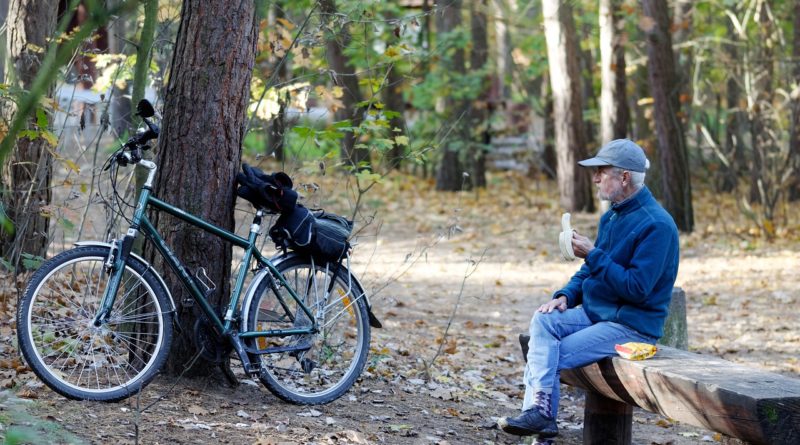What Are The Practical Tips For Healthy Food Habits For Older People?
Old People Food Habits and the Consequences
The food habits of older people do not always coincide with their food needs. Several surveys of the food choices of older people have been made in different localities; all report much the same trend. Unfortunately, many adults in late middle age, or older, are misled in their search for “eternal youth” or relief from their aches and pains. They hear and believe the TV and Internet promotions of various panaceas – elixirs or multivitamins and mineral mixtures claimed to be remedies for all sorts of ills. They read and believe the fad health books, especially those that have been flooding the book market during the past decade. It is well-known that food and nutrition quackery thrives in areas where middle-income retired people congregate. Before going to the practical tips for healthy food habits for older people, let’s read some fundamental issues and solutions regarding the food and diet habits of older people.
Food Requirements For Old Age
The dietary requirements of later life are influenced by several factors such as general health; degree of physical activity; changes in the ability to chew, digest, and absorb food; efficiency in the use of nutrients by the tissues; alteration in the endocrine system; emotional state; and mental health. The nutrient and calorie allowances that maintain one person in optimum health may be inadequate or more than adequate to meet the needs of other, apparently similar, individuals.
When Calories Need to be Reduced – The food sources of reduced calories must be chosen with care to include all essential factors, in higher proportion than that needed in former years because the total food consumed is less. There is an obvious need for foods, which carry a full quota of proteins, minerals, and vitamins. It is essential to reduce the consumption of empty calories – sugar, rich desserts, cakes, candies, fats, and alcohol.
Reduction in total calories involves the most difficult task of alteration of food habits. For the majority of persons, habit is perhaps one of the greatest obstacles in the path to an optimal diet. The longer the habits are continued, the more fixed they become. The food habits of older people are apt to be so fixed that it is difficult to change them unless the way is made easy.
When Calories Need to be Increased – Quite another problem exists for the elderly, or the disabled and shut-in who may not have enough food to meet energy or other nutritional requirements. If they live alone or have poor cooking facilities, they may have little incentive or opportunity to market and cook for themselves.
Sometimes appetite fails to tempt the very elderly to eat enough food or the right kind of food. The reduced calories in such cases seldom carry enough of the essential nutrients.
Related Stories
Fruits Check Blurry Vision in Old Age
Protein- The Most Important Building Block For Older People
Protein needs are not reduced appreciably with age, and yet many older people eat less protein than they did when younger. This is most likely to happen where marketing is difficult, cooking facilities are poor, or the money for food is limited. It can also happen among those with a better economic status when denture troubles, lack of appetite, or too little energy prevent the preparation or eating of meats or other protein foods.
The requirement of certain amino acids may even be increased to meet changes in body function with age. The methionine and lysine requirements of six male subjects 50 to 70 years of age to substantially greater than those of younger males.
Special attention may need to be given to meeting the protein requirements of the older person if he is sharing in the family meals planned to meet the higher caloric food habits of younger members of the family. An extra glass of skim milk at meals or between meals may be consumed to supplement smaller servings of meat, fish, or other high-protein main dishes. If the person lives alone, milk, cheese and eggs are often used as alternates for meat, fish, or poultry because of ease of preparation. Adequate calories tend to spare protein so the total food intake should always be taken into account.
10 Practical Tips For Healthy Food Habits For Older People
- Prioritize colorful fruits, vegetables, whole grains, lean proteins, and healthy fats. Also, opt for fortified cereals, leafy greens, and fatty fish (e.g., salmon) for essential vitamins (B12, D) and minerals.
- Drink water regularly, even if not thirsty. Keep a water bottle nearby. Eat cucumber, watermelon and soups.
- Consider good quality light protein drinks or smoothies.
- Eat frequent smaller meals to ensure steady energy levels. Also, use smaller plates to control your portion.
- Use herbs and spices instead of additional salt to enhance flavor.
- Choose fresh, properly cooked foods to prevent foodborne illnesses.
- Eating with family or friends makes mealtimes enjoyable and encourages healthy eating habits.
- Leave red meat and add fish to your diet. Remember to add less fatty fish. For example, add river and pond fresh fishes to your diet.
- Consult healthcare providers about food-drug interactions.
- Start your day with a high-fiber breakfast like oatmeal, whole-grain toast, or fresh fruit to support digestion.
Get updates and read additional stories on the Health Orbit Fan Page.
For Guest posts, Sponsored posts and other details, please click ‘Contact Us’ page.

